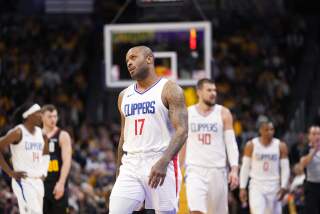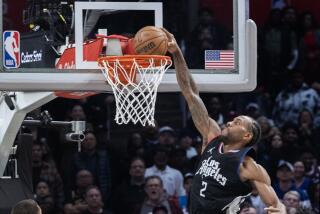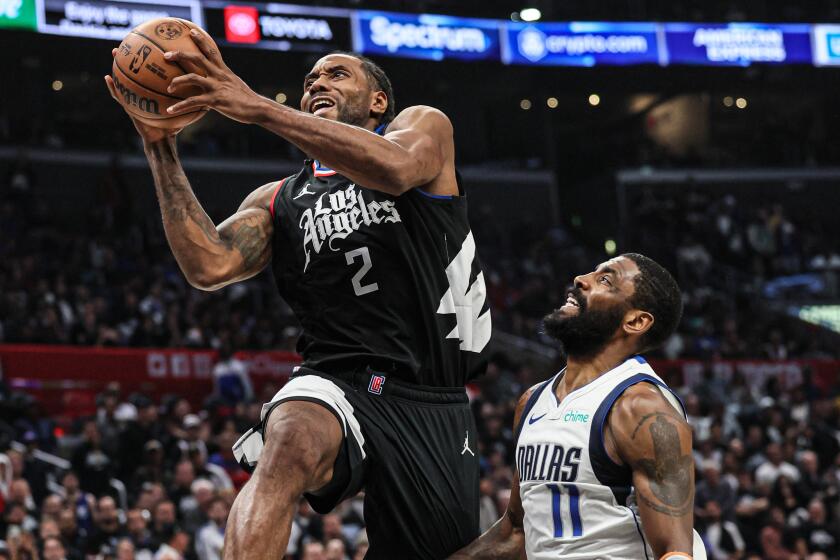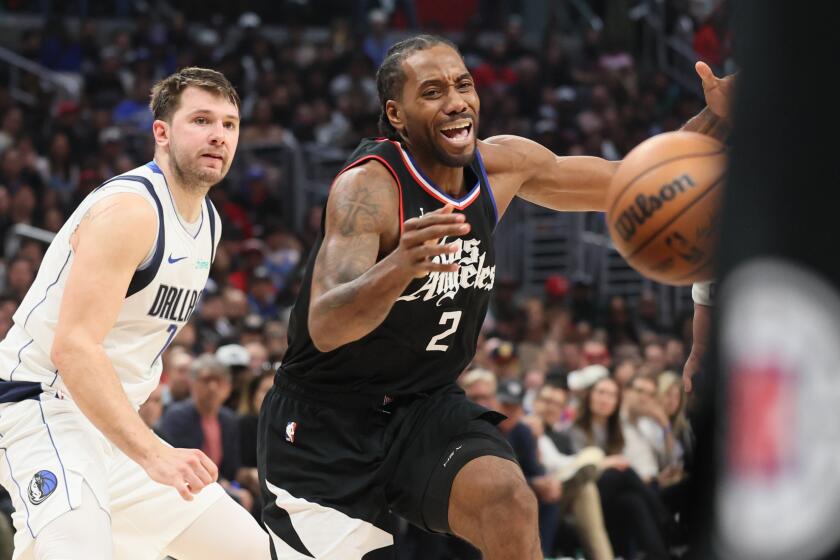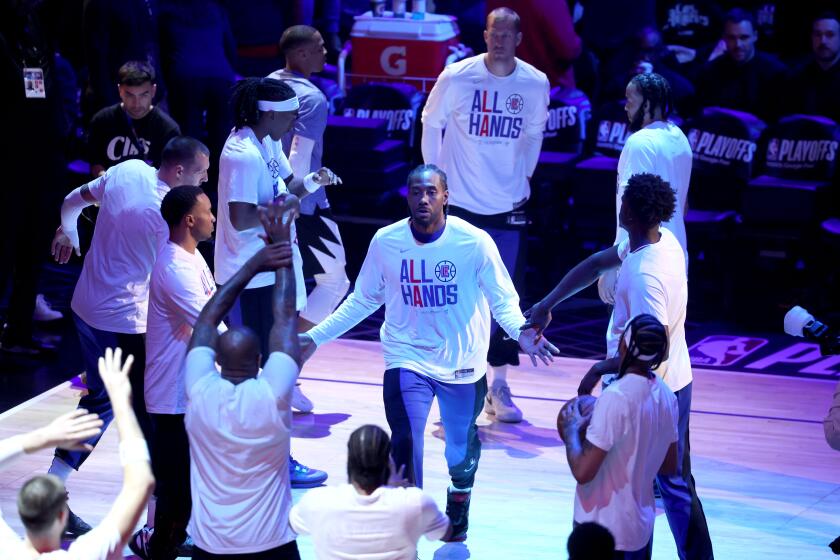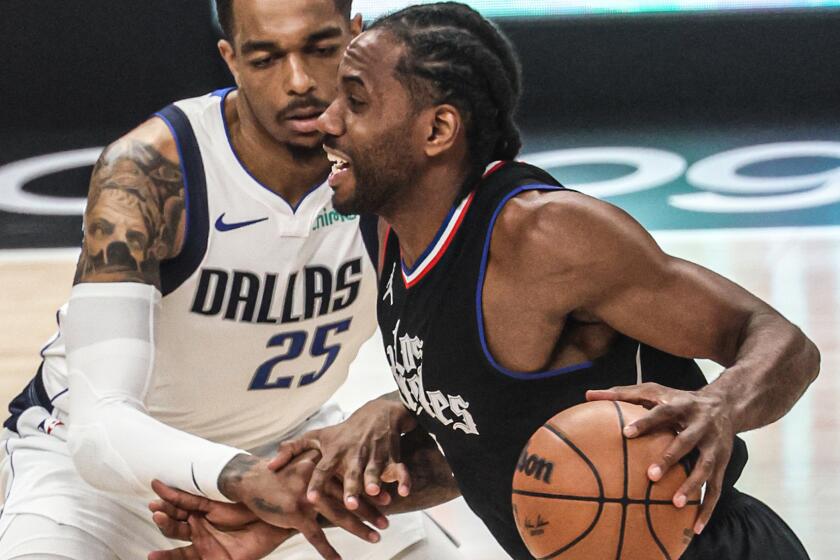NBA moves to oust Sterling, accuses Clippers of destroying evidence
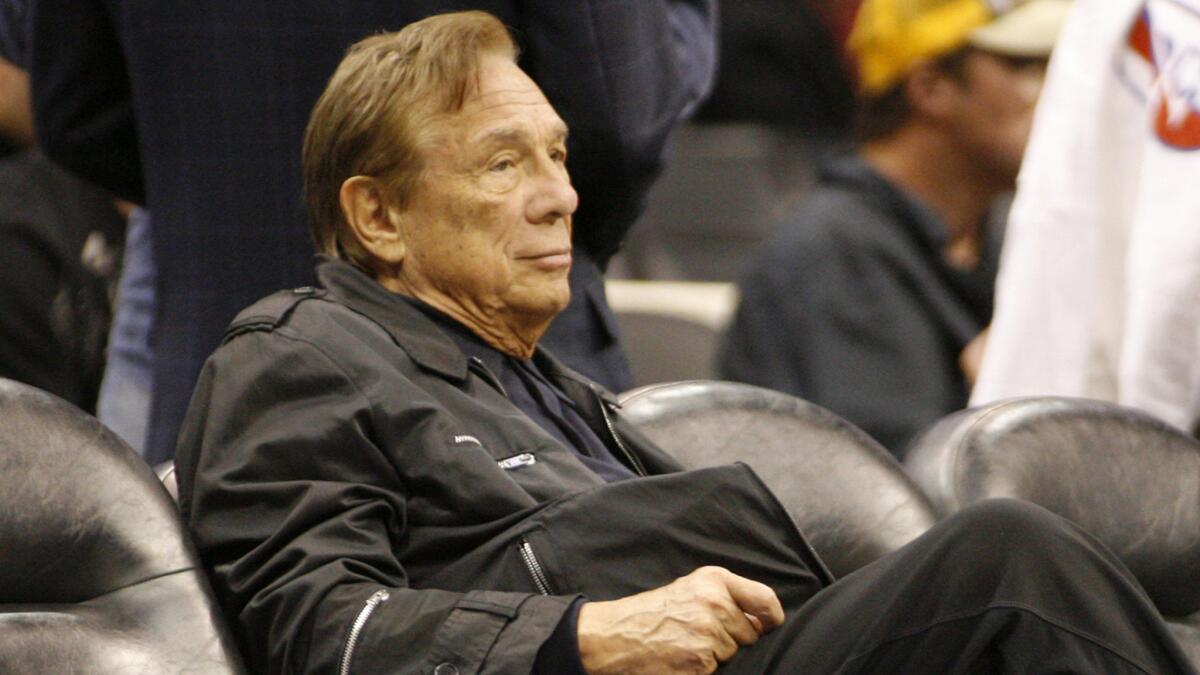
The NBA filed formal allegations Monday and set a June 3 hearing in its effort to strip Donald Sterling of his ownership of the Clippers, citing conduct that the league said “damaged and continues to damage the NBA and its teams.”
The league said it intends to present evidence at the hearing to try to persuade three-quarters of the NBA’s owners to terminate “all ownership interests in the Clippers,” in order to force both Sterling and his wife, Shelly, to sell the team they have owned for 33 years.
A summary of the allegations claimed that Sterling significantly undercut the NBA’s efforts to promote “diversity and inclusion” when he was caught in an audio recording asking a frequent companion to refrain from being seen in public with black people or taking them to Clippers games.
Although the NBA did not release the full accusation, a two-page summary confirmed what many observers suspected: that the 80-year-old Clippers owner further damaged his cause when he gave an interview last week to CNN. The NBA cited Sterling’s assertion in that interview that African Americans do not support their communities as another example of how he had undermined the league.
The NBA statement said that Sterling’s words damaged not only the league’s attempts at inclusiveness but damaged relationships with fans, marketing partners and government and community leaders. Additional harm has been suffered by NBA owners, players and Clippers team personnel, the league claimed.
The league also accused the Clippers, when still under Sterling’s control, of destroying evidence, providing false and misleading evidence and issuing a false and misleading public statement. Although the summary did not specify, the misleading statement was presumably team executive Andy Roeser’s claim that the racially inflammatory recordings might have been altered.
Asked to respond, Sterling attorney Maxwell Blecher said he was reviewing the charges and had no comment. However, Blecher asked the NBA to give his client three months to respond to the charges, a request the NBA denied, according to an individual familiar with the situation, who asked not to be named because of the sensitivity of the discussions.
Pierce O’Donnell, Shelly Sterling’s lawyer, said the “voluminous” allegations offered “no lawful basis for stripping Shelly Sterling of her 50% ownership interest in the Clippers.” O’Donnell called his client “the innocent estranged spouse.”
The furor began April 25, when the website TMZ posted an audio recording in which Sterling told companion V. Stiviano he didn’t want to see her around African Americans. His rant followed Stiviano’s posting on Instagram of a photo in which she posed with former Lakers great Magic Johnson.
Days later, NBA Commissioner Adam Silver fined Sterling $2.5 million, banned him from the league for life and asked fellow owners to jettison their longest-tenured colleague.
Monday’s action marks the formal start of the ownership termination process. Under the NBA constitution, Sterling has until May 27 to respond. At the special June 3 NBA governors meeting, he will have the right to make his case for remaining in the league. Glen Taylor, owner of the Minnesota Timberwolves, will preside.
In his interview with CNN’s Anderson Cooper, Sterling did not deny he made the comments but said that they did not represent his true feelings. He said that Stiviano had “baited” him into making the statements and that he was at least partly motivated by jealousy. He insisted he was not a racist.
The NBA constitution allows for termination of league membership for a variety of reasons. While specific provisions refer to illegal gambling or a failure to pay bills, Article 13 of the constitution includes a catch-all termination provision for owners who “fail or refuse to fulfill its contractual obligations to the Association, its members, players, or any third party in such a way as to affect the association or its members adversely.”
The league said this provision had been violated on several counts. It said: Sterling had failed to use his best efforts to assure that the sport operated “according to the highest moral and ethical standards”; he violated his “duty of loyalty” to the league by not upholding its goal of inclusiveness and he broke another requirement by refusing to pay the $2.5-million fine.
Blecher issued a statement last week saying that Sterling believed the fine was not proper because Sterling had not been granted his due process rights. The attorney, who first joined Sterling in fighting the NBA more than 30 years ago, asserted that Sterling did not deserve “any punishment at all.”
The league’s summary said that the controlling owner’s words were deemed by the league to be the responsibility of the entire ownership group. It said both Sterlings had to go, because that is “the only viable means for bringing Sterling’s interest in the Clippers to an end.”
Times staff writer Broderick Turner contributed to this report.
More to Read
Get our high school sports newsletter
Prep Rally is devoted to the SoCal high school sports experience, bringing you scores, stories and a behind-the-scenes look at what makes prep sports so popular.
You may occasionally receive promotional content from the Los Angeles Times.
